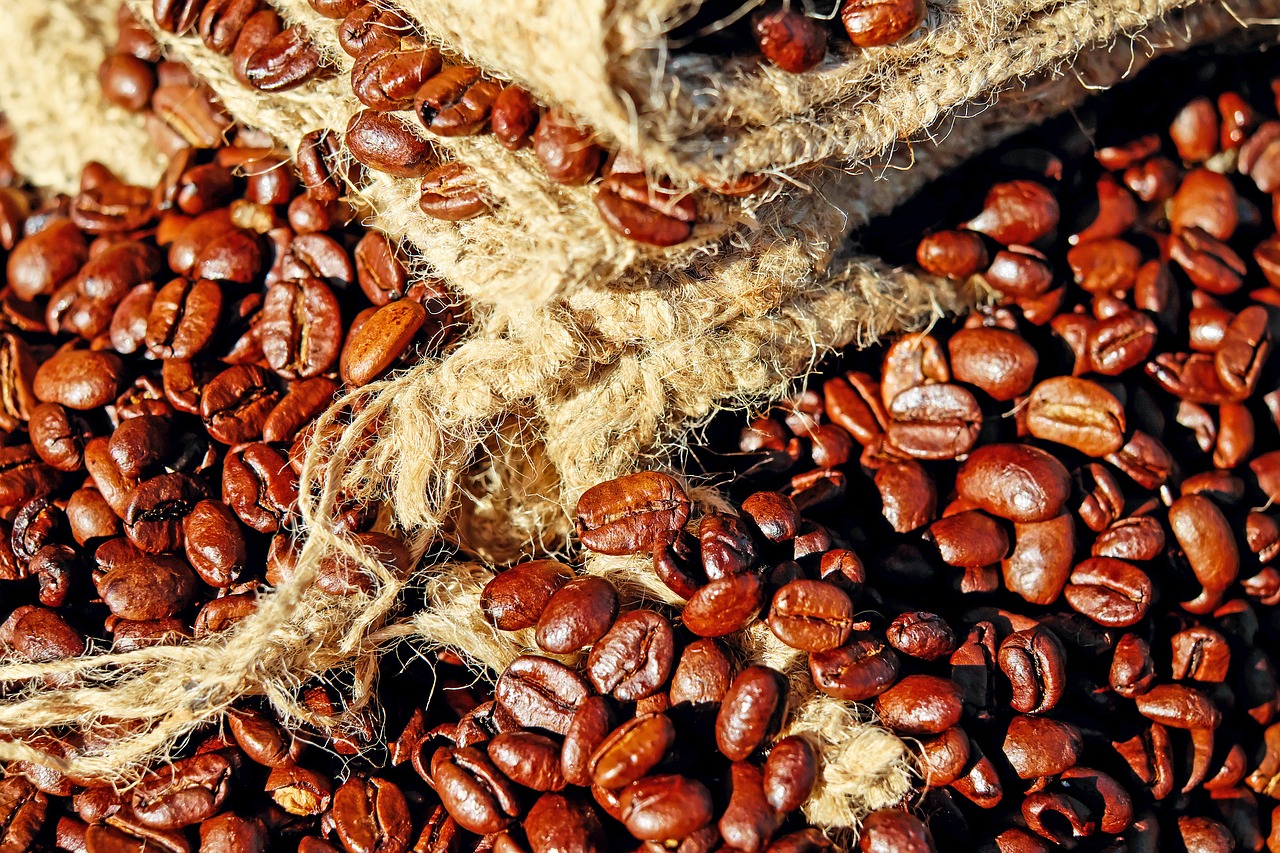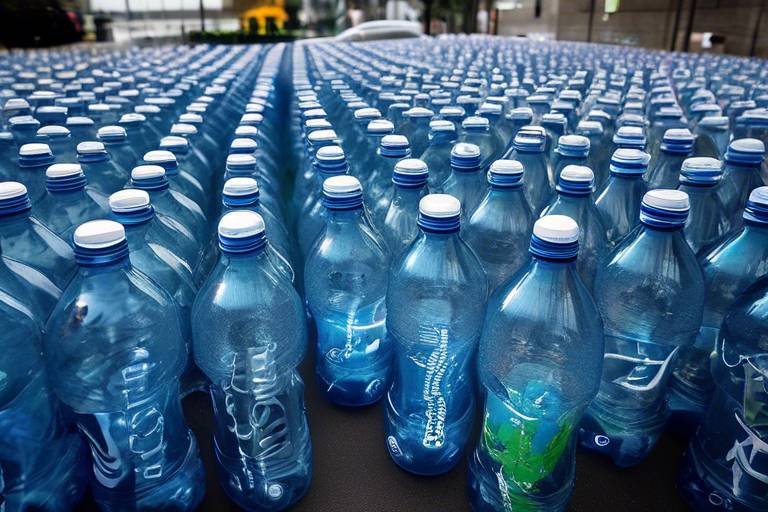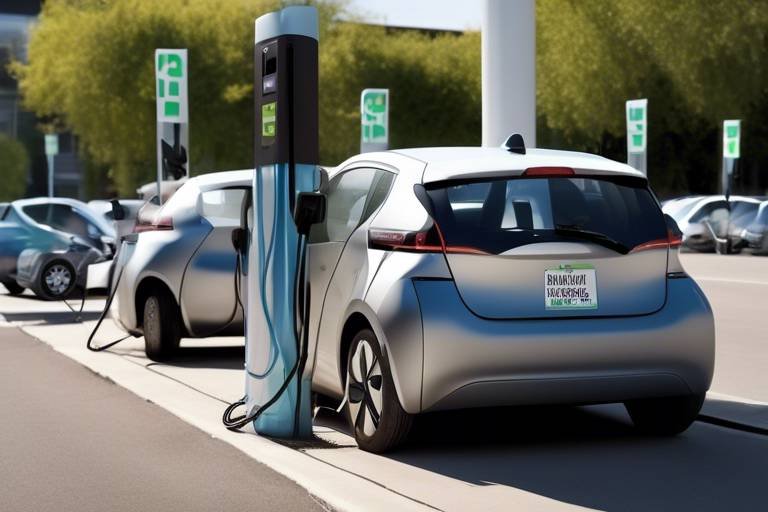Top Sustainable Coffee Brands to Support
When it comes to enjoying a cup of coffee, many of us don’t just want a great taste; we also want to feel good about where our coffee comes from. This is where the concept of sustainable coffee comes into play. It’s more than just a trendy label; it’s a movement that combines ethical sourcing, environmental responsibility, and community support. By choosing sustainable coffee brands, you not only indulge in a delightful beverage but also contribute positively to the planet and the communities that cultivate this beloved crop. So, let’s dive into the world of sustainable coffee and explore some brands that are making a significant impact.
Sustainable coffee brands are those that prioritize practices promoting environmental health, social equity, and economic viability. They ensure that coffee production does not harm the planet or the communities involved in its cultivation. But what does this really mean for you as a consumer? It means that every sip you take can be a vote for a better world. Imagine sipping your morning brew, knowing that the farmers who grew the beans are paid fairly and that their farming practices are kind to the Earth. It’s a win-win situation!
Now, you might be wondering, what exactly makes a coffee brand sustainable? There are several key factors to consider. First and foremost is ethical sourcing. This involves selecting coffee from producers who pay fair wages, avoid exploitative labor practices, and implement environmentally friendly farming methods. These practices foster a more equitable coffee industry, ensuring that everyone involved in the coffee supply chain benefits.
One of the most recognized ways to ensure ethical sourcing is through Fair Trade certification. This certification guarantees that producers receive fair compensation for their coffee, promoting sustainable practices and empowering farmers to improve their livelihoods and communities. The benefits of Fair Trade extend beyond just fair wages; they also contribute to community development and sustainable agricultural practices. However, it’s essential to acknowledge that Fair Trade faces challenges, such as market saturation and price fluctuations, which can complicate its impact.
Another approach to sustainability is through direct trade relationships. This method involves roasters purchasing coffee directly from farmers, allowing for transparency in pricing and fostering long-term relationships that benefit both parties. By cutting out middlemen, direct trade often ensures that more of the profits go directly to the farmers, enabling them to invest in their communities and improve their farming practices.
So, which brands are leading the charge in sustainable coffee? Here are a couple of standout examples:
Brand A is a shining example of a company that focuses on eco-friendly practices. They utilize renewable energy sources and sustainable farming methods to minimize their carbon footprint. Not only do they deliver exceptional coffee, but they also ensure that their production processes are kind to the environment. By choosing Brand A, you’re not just enjoying a delicious cup of coffee; you’re supporting a brand that prioritizes the planet.
Brand B takes a different approach by prioritizing community development. They invest in educational programs and healthcare initiatives for farmers, ensuring that their coffee production positively impacts the lives of those involved. This commitment to community support means that every purchase you make helps uplift the farmers and their families, creating a ripple effect of positive change.
In conclusion, selecting sustainable coffee is not just about the flavor; it’s about making a conscious choice that supports ethical practices and the environment. When shopping for your next bag of beans, look for certifications like Fair Trade, research brand practices, and consider the social and environmental impacts of your choices. By doing so, you’ll be making a meaningful contribution to a more ethical coffee industry.
- What is sustainable coffee? Sustainable coffee refers to coffee produced in a way that is environmentally friendly, socially equitable, and economically viable.
- How can I identify sustainable coffee brands? Look for certifications such as Fair Trade, research brand practices, and check for transparency in sourcing.
- Why is ethical sourcing important? Ethical sourcing ensures that farmers are paid fair wages and that their communities benefit from coffee production.
- What are the benefits of Fair Trade? Fair Trade promotes sustainable practices, empowers farmers, and contributes to community development.

Understanding Sustainable Coffee
Sustainable coffee refers to practices that promote environmental health, social equity, and economic viability. It's a holistic approach that ensures coffee production does not harm the planet or the communities involved in its cultivation. Imagine sipping your morning brew while knowing that your choice contributes to a healthier Earth and fairer conditions for farmers. Isn’t that a delightful thought?
At its core, sustainable coffee production focuses on three key pillars: environmental stewardship, social responsibility, and economic viability. These pillars work together to create a coffee industry that is not only profitable but also ethical and sustainable for future generations. For instance, environmentally friendly farming methods, such as organic farming and agroforestry, help preserve biodiversity and reduce the use of harmful chemicals. This not only benefits the planet but also results in better quality coffee.
Furthermore, social equity is achieved by ensuring that farmers receive fair wages and work in safe conditions. This is where ethical sourcing practices come into play. By choosing brands that prioritize sustainability, you are supporting a system that values the hard work of farmers and ensures they can thrive. Think of it as a ripple effect; when farmers are paid fairly, they can invest in their communities, improve their living conditions, and provide better education for their children.
Lastly, economic viability means that the coffee industry can sustain itself over time. This involves creating a market that supports fair prices for coffee, even in the face of fluctuating global prices. It's a delicate balance, but when consumers choose sustainable coffee, they help strengthen this system. By understanding these principles, you become an informed consumer who can make choices that align with your values.
In summary, understanding sustainable coffee is about recognizing the interconnectedness of the environment, society, and economy. By supporting sustainable coffee brands, you contribute to a positive change in the coffee industry. So, the next time you enjoy your favorite cup, remember that your choice can make a difference!
Frequently Asked Questions
- What is sustainable coffee? Sustainable coffee refers to coffee produced in ways that are environmentally friendly, socially responsible, and economically viable.
- Why is ethical sourcing important? Ethical sourcing ensures that farmers are paid fair wages and work under safe conditions, promoting social equity in the coffee industry.
- How can I identify sustainable coffee brands? Look for certifications such as Fair Trade or Organic, and research the brand's practices and commitments to sustainability.

Ethical Sourcing Practices
When it comes to coffee, the journey from bean to cup is more than just a delightful experience; it's a complex web of interactions that can significantly affect the lives of farmers and the environment. Ethical sourcing is at the heart of this journey, ensuring that every sip of your favorite brew contributes to a better world. So, what does ethical sourcing really mean? It's all about choosing coffee from producers who prioritize fair wages, avoid exploitative labor practices, and embrace environmentally friendly farming methods. This approach not only fosters a more equitable coffee industry but also promotes the health of our planet.
Imagine this: every time you enjoy a cup of coffee, you could be supporting a farmer who is being paid fairly for their hard work, rather than someone who is barely scraping by. Ethical sourcing practices create a ripple effect that empowers farmers, enhances their communities, and contributes to sustainable agriculture. But how can you identify whether a coffee brand is truly committed to ethical sourcing? Look for certifications, such as Fair Trade and Rainforest Alliance, which indicate a brand's dedication to these principles.
To give you a clearer picture, here’s a quick breakdown of some key ethical sourcing practices:
| Practice | Description |
|---|---|
| Fair Wages | Ensuring that farmers receive a living wage for their coffee, allowing them to support their families and invest in their communities. |
| Environmental Responsibility | Implementing sustainable farming techniques that protect biodiversity and reduce carbon footprints. |
| Community Support | Investing in local education, healthcare, and infrastructure to improve the quality of life for farmers and their families. |
While ethical sourcing is a noble goal, it is not without its challenges. Some brands may claim to be ethical without truly adhering to these practices, leading to a phenomenon known as "greenwashing." It's crucial to do your research and ensure that the brands you support are genuinely committed to these values. Look beyond the labels and investigate their sourcing practices, transparency, and community engagement.
In conclusion, ethical sourcing is not just a trend; it's a necessary shift in the coffee industry that can lead to a more sustainable and equitable future. By choosing brands that prioritize ethical sourcing, you are not only enjoying a cup of coffee but also contributing to a movement that values people and the planet. So next time you're at your favorite café or browsing the coffee aisle, remember the power of your choices. Will you sip sustainably?
- What is ethical sourcing in coffee? Ethical sourcing in coffee refers to practices that ensure fair wages for farmers, environmentally friendly farming methods, and community support.
- How can I identify ethically sourced coffee? Look for certifications such as Fair Trade, Rainforest Alliance, or direct trade labels on coffee packaging.
- What are the benefits of ethical sourcing? Ethical sourcing promotes fair compensation for farmers, sustainable agricultural practices, and community development.
- Are all coffee brands that claim to be ethical truly ethical? Not necessarily; it's important to research brands to ensure they genuinely follow ethical sourcing practices and are not engaging in greenwashing.

Fair Trade Certification
Fair Trade certification is more than just a label; it's a commitment to social justice and sustainable practices in the coffee industry. When you see that little Fair Trade logo on your coffee bag, it signifies that the producers have met rigorous standards designed to protect not only the environment but also the rights and livelihoods of farmers. This certification ensures that farmers receive a fair price for their coffee, which is crucial in a market often dictated by large corporations that prioritize profit over people.
One of the core principles of Fair Trade is the establishment of a minimum price for coffee, which acts as a safety net for farmers against the volatile nature of coffee prices. Imagine waking up every day with the uncertainty of whether you’ll be able to afford basic necessities like food or healthcare. Fair Trade alleviates this stress by guaranteeing a stable income for farmers, enabling them to invest in their farms and communities. This, in turn, leads to higher quality coffee as farmers can focus on sustainable farming practices rather than merely surviving.
Moreover, Fair Trade certification encourages environmentally friendly farming techniques. Farmers are trained in sustainable agriculture, which helps preserve biodiversity and reduce the use of harmful chemicals. This means that when you sip your ethically sourced coffee, you're not only supporting the farmers but also contributing to a healthier planet. The impact is profound; it’s like planting a tree that bears fruit for generations to come.
However, it’s essential to recognize that Fair Trade is not without its challenges. Some critics argue that the system can lead to market saturation, where too many products carry the Fair Trade label, diluting its significance. Additionally, price fluctuations in the global market can still affect farmers, even with the minimum price guarantee. Continuous improvement in standards and practices is necessary to maintain the integrity of Fair Trade and ensure that it genuinely supports farmers.
In summary, Fair Trade certification is a powerful tool for promoting ethical sourcing and sustainability in the coffee industry. By choosing Fair Trade coffee, you are not just enjoying a delicious cup; you are also becoming part of a movement that champions fair wages, environmental stewardship, and community development. So, the next time you reach for that bag of coffee, remember that your choice can make a difference in the lives of farmers and the health of our planet.

Benefits of Fair Trade
When we talk about Fair Trade, we're diving into a world where the coffee cup you hold not only warms your hands but also uplifts communities and nurtures the environment. One of the most significant benefits of Fair Trade is the assurance that farmers receive a fair price for their hard work. This is not just a number; it’s a lifeline that allows them to invest in their farms, their families, and their futures. Imagine waking up knowing that your morning brew contributes to improving the living conditions of farmers thousands of miles away. That’s the power of Fair Trade!
Moreover, Fair Trade practices promote sustainable agriculture. Farmers are encouraged to use eco-friendly methods that protect the environment. This means healthier soil, cleaner water, and a reduction in harmful pesticides. It’s like giving Mother Nature a well-deserved hug while enjoying your favorite coffee blend. By supporting Fair Trade, you're not just choosing a product; you're opting for a lifestyle that values environmental responsibility.
Another remarkable aspect is the emphasis on community development. Fair Trade organizations often reinvest a portion of profits back into the communities where coffee is grown. This funding can go towards building schools, improving healthcare facilities, or even creating local infrastructure. Picture a community where children can attend school instead of working in the fields, or where families have access to essential healthcare services. These are the ripple effects of your coffee choices!
To illustrate the impact of Fair Trade, consider the following table that outlines some key benefits:
| Benefit | Description |
|---|---|
| Fair Wages | Farmers receive a guaranteed minimum price for their coffee, ensuring they can support their families. |
| Sustainable Practices | Encourages environmentally friendly farming techniques that protect ecosystems. |
| Community Investment | Profits are reinvested into local communities for education, healthcare, and infrastructure. |
| Quality Assurance | Farmers are trained in best practices, resulting in higher quality coffee. |
But the benefits don’t stop there! Fair Trade also fosters gender equality by empowering women in coffee-growing regions. Women often face barriers in accessing resources and opportunities. Fair Trade initiatives strive to break down these barriers, providing women with the tools they need to thrive. This not only uplifts individuals but also strengthens the entire community.
In summary, choosing Fair Trade coffee is about so much more than just taste; it's about making a conscious decision that supports ethical practices, nurtures the planet, and uplifts communities. So, the next time you take a sip of your favorite brew, remember that you're part of a larger movement that champions fairness, sustainability, and social justice.
- What is Fair Trade? Fair Trade is a movement aimed at helping producers in developing countries achieve better trading conditions and promote sustainability.
- How does Fair Trade benefit farmers? Farmers receive fair prices for their products, which helps them improve their livelihoods and invest in their communities.
- Are all Fair Trade products organic? Not necessarily; however, many Fair Trade products are produced using organic farming methods.
- How can I identify Fair Trade products? Look for the Fair Trade certification logo on products in stores.

Challenges of Fair Trade
Despite the numerous benefits that Fair Trade brings to the coffee industry, it is not without its challenges. One significant issue is market saturation. As more brands and producers seek Fair Trade certification, the market becomes increasingly crowded. This saturation can dilute the perceived value of the certification and make it harder for consumers to identify truly sustainable and ethical options. When every brand claims to be "Fair Trade," how do you know which ones are genuinely committed to these principles?
Another challenge is price fluctuations. The coffee market is notorious for its volatile pricing, which can affect the stability of incomes for farmers. While Fair Trade aims to provide a minimum price to ensure that producers can cover their costs, external market conditions can still impact the actual earnings of these farmers. Imagine working hard to cultivate your crop, only to find that the market has dropped, leaving you scrambling to make ends meet.
Furthermore, there is a continuous need for improvement in standards. As consumer awareness grows, so do expectations. This means that Fair Trade organizations must constantly evolve their standards to ensure they are not only meeting the needs of farmers but also aligning with the increasing demands of consumers who want to make a difference with their purchases. This can be a daunting task, as it requires ongoing education and resources for farmers to adapt to new practices.
Additionally, there can be a lack of transparency in the Fair Trade system. Some consumers may find it challenging to trace the journey of their coffee from farm to cup, leading to skepticism about the authenticity of Fair Trade claims. This transparency issue raises the question: if consumers cannot see the direct benefits of their purchases, how can they trust that their money is making a positive impact?
In summary, while Fair Trade offers a pathway to more ethical coffee production, it faces challenges that need to be addressed to ensure its effectiveness. Acknowledging these hurdles is the first step toward creating a more equitable coffee industry that truly supports farmers and their communities.
- What is Fair Trade? Fair Trade is a certification system that ensures producers receive fair compensation for their goods, promoting sustainable practices and empowering farmers.
- How does Fair Trade benefit consumers? Consumers can enjoy higher quality products while supporting ethical practices that contribute to community development and environmental sustainability.
- What are the main challenges faced by Fair Trade? Some challenges include market saturation, price fluctuations, the need for continuous improvement in standards, and a lack of transparency.
- How can I identify truly sustainable coffee brands? Look for certifications, research brand practices, and consider their impact on social and environmental issues.

Direct Trade Relationships
When it comes to coffee, the journey from the farm to your cup can be quite complex, but simplify this process in a way that benefits everyone involved. Unlike traditional coffee sourcing methods, where multiple middlemen can dilute the connection between farmers and roasters, direct trade allows roasters to purchase coffee beans directly from the farmers. This creates a transparent and equitable system that fosters trust and mutual respect.
Imagine walking into a coffee shop and knowing that the barista can tell you exactly where your coffee was grown, how it was harvested, and the story behind it. That’s the beauty of direct trade! By cutting out the middlemen, roasters can offer farmers better prices for their beans, which not only supports their livelihoods but also encourages sustainable farming practices.
One of the key advantages of direct trade is the transparency it brings to the coffee supply chain. Farmers can negotiate prices directly with roasters, ensuring they receive a fair wage for their hard work. This arrangement often leads to improved quality of the coffee as farmers are incentivized to produce the best beans possible. In return, roasters can offer their customers high-quality, ethically sourced coffee that they can feel good about drinking.
Moreover, direct trade relationships often lead to long-term partnerships. Roasters invest time in building relationships with farmers, which can include visits to the farms, sharing knowledge about sustainable practices, and supporting community initiatives. This collaboration not only enhances the quality of the coffee but also promotes the overall well-being of the farming communities. It’s a win-win situation!
However, establishing direct trade relationships isn’t without its challenges. It requires a commitment to understanding the complexities of coffee production and a willingness to invest in the communities from which the coffee is sourced. Roasters need to be proactive in their approach, ensuring they are not just taking advantage of the farmers but are genuinely contributing to their economic and social development.
To illustrate the impact of direct trade, consider the following table that compares traditional sourcing methods with direct trade:
| Aspect | Traditional Sourcing | Direct Trade |
|---|---|---|
| Price Transparency | Often opaque, with multiple markups | Clear pricing, direct negotiations |
| Quality Control | Varied quality due to multiple middlemen | Higher quality due to direct farmer engagement |
| Farmer Support | Limited; often low wages | Fair wages and investment in community |
| Environmental Practices | Less focus on sustainability | Encouragement of eco-friendly methods |
As consumers become more aware of the impact of their purchasing decisions, the demand for direct trade coffee is on the rise. Shoppers are increasingly looking for brands that prioritize ethical sourcing and environmental sustainability. By choosing direct trade coffee, you're not just getting a delicious brew; you're also supporting a system that values fairness and community.
In conclusion, direct trade relationships are a powerful way to create a more sustainable and equitable coffee industry. By fostering transparency and building lasting partnerships, both farmers and roasters can thrive, ensuring that every cup of coffee is not just a beverage, but a story of collaboration and respect.
- What is direct trade coffee? Direct trade coffee refers to a sourcing model where coffee roasters buy beans directly from farmers, ensuring fair pricing and fostering sustainable practices.
- How does direct trade benefit farmers? It allows farmers to receive better prices for their coffee, promotes sustainable farming practices, and encourages community development.
- Can I find direct trade coffee at local stores? Yes, many local coffee shops and specialty stores offer direct trade coffee options. Look for brands that emphasize their sourcing practices.
- Is direct trade the same as Fair Trade? While both aim to support farmers, direct trade focuses on direct relationships and negotiations, whereas Fair Trade is a certification system with specific standards.

Top Sustainable Coffee Brands
When it comes to enjoying your morning cup of joe, why not make a choice that not only satisfies your taste buds but also benefits the planet and its people? Several coffee brands are stepping up to the plate, prioritizing sustainability, ethical sourcing, and community support. These brands are not just about brewing coffee; they are about brewing change. Let's dive into some of the top sustainable coffee brands that are making a significant impact in the industry.
One standout is Brand A. This company is committed to the environment through innovative eco-friendly practices. They harness renewable energy sources and adopt sustainable farming methods that significantly reduce their carbon footprint. By working closely with farmers, Brand A ensures that the coffee they produce is not only exceptional in flavor but also environmentally responsible. Imagine sipping a rich, flavorful coffee, all while knowing that your choice is helping to protect the planet—now that’s a win-win!
Another remarkable brand is Brand B, which takes a different approach by focusing on supporting local communities. They understand that coffee production goes beyond just harvesting beans; it’s about uplifting the lives of those who grow them. Brand B invests in educational programs and healthcare initiatives for farmers, ensuring that their coffee production positively impacts the lives of those involved. This commitment to community development creates a ripple effect, enhancing the quality of life for farmers and their families. When you choose Brand B, you’re not just buying coffee; you’re supporting an entire ecosystem of growth and empowerment.
These brands exemplify what it means to be sustainable in the coffee industry. They prioritize not just the quality of their products but also the quality of life for their producers and the health of our planet. When selecting a sustainable coffee brand, consider looking for certifications like Fair Trade or Rainforest Alliance, which can guide you in making an informed choice. Additionally, researching the brand's practices can reveal how they contribute to social and environmental causes.
In conclusion, the world of sustainable coffee is rich with options that allow you to enjoy your favorite beverage while making a positive impact. By supporting brands that prioritize ethical sourcing and community support, you can feel good about each sip. Next time you’re at the store or ordering online, remember that your coffee choice can be a powerful statement for sustainability. Choose wisely, and let your coffee do the talking!
- What makes coffee sustainable? Sustainable coffee is produced through methods that protect the environment, support fair labor practices, and promote economic viability for farmers.
- How can I identify sustainable coffee brands? Look for certifications such as Fair Trade, Rainforest Alliance, or Organic, and research the brand's sourcing and production practices.
- Are sustainable coffee brands more expensive? While some sustainable brands may be pricier, the investment often reflects the fair wages and ethical practices involved in production.
- Can I find sustainable coffee in my local store? Many local and specialty coffee shops carry sustainable brands, and some larger retailers are also beginning to stock them.

Brand A: Commitment to the Environment
When it comes to sustainable coffee, Brand A stands out as a beacon of environmental responsibility. This brand has made a serious commitment to eco-friendly practices, ensuring that every cup of coffee not only tastes great but also contributes positively to the planet. By utilizing renewable energy sources, such as solar and wind power, Brand A significantly reduces its carbon footprint throughout the coffee production process.
But what does this commitment look like in practice? For starters, Brand A employs sustainable farming methods that prioritize the health of the soil and biodiversity. They work closely with farmers to implement techniques such as shade-grown coffee, which not only enhances the flavor profile of the beans but also preserves natural habitats for wildlife. This method allows coffee plants to thrive under the canopy of trees, creating a more balanced ecosystem.
Additionally, Brand A actively participates in reforestation projects. For every bag of coffee sold, a portion of the profits goes towards planting trees in deforested areas. This initiative not only helps combat climate change but also supports local communities by providing jobs and resources. Imagine sipping on your morning brew, knowing that with each sip, you are helping to restore the earth's green cover!
Brand A also emphasizes transparency in its supply chain. They believe that consumers have the right to know where their coffee comes from and how it is produced. By providing detailed information about their sourcing practices, they foster trust and encourage other brands to adopt similar standards. This level of transparency is crucial in today's market, where consumers are increasingly concerned about the ethical implications of their purchases.
In summary, Brand A's commitment to the environment is multifaceted, encompassing renewable energy use, sustainable farming, reforestation efforts, and supply chain transparency. By choosing Brand A, consumers are not just opting for high-quality coffee; they are also making a conscious choice to support a brand that prioritizes the health of our planet. So next time you're in the coffee aisle, remember that your choice can make a difference!
- What makes Brand A different from other coffee brands? Brand A focuses on sustainable practices, including renewable energy and shade-grown coffee, which contribute to environmental health.
- How does Brand A support local communities? Brand A invests in reforestation projects and provides resources and jobs to local farmers.
- Can I find Brand A's coffee in local stores? Yes, Brand A is widely available in many grocery stores and online retailers.
- What certifications does Brand A have? Brand A holds several certifications, including organic and Fair Trade, ensuring ethical sourcing and sustainable practices.

Brand B: Supporting Local Communities
When it comes to coffee, many of us simply think of that rich aroma wafting through our kitchens or the boost it gives us to tackle the day. However, Brand B takes this experience to a whole new level by emphasizing the importance of community support in every cup of coffee they produce. This brand isn't just about brewing the perfect cup; it's about brewing positive change in the lives of the farmers and communities that grow the beans.
Brand B has made it their mission to invest in the very communities from which they source their coffee. They understand that a thriving community leads to better quality coffee, and they are dedicated to creating a cycle of support that uplifts everyone involved. This means more than just fair wages; it includes funding for educational programs, healthcare initiatives, and sustainable farming practices. By prioritizing these areas, Brand B is not only enhancing the lives of farmers but also ensuring that the quality of their coffee remains top-notch.
One of the standout initiatives of Brand B is their commitment to educational programs. They believe that knowledge is power, and by providing farmers with access to training and resources, they empower them to improve their farming techniques and business practices. This results in higher quality coffee and a more sustainable livelihood. Imagine a farmer learning about organic farming methods or pest management techniques that reduce the need for harmful chemicals. This not only benefits the farmer's family but also contributes to a healthier environment.
In addition to education, Brand B actively supports healthcare initiatives in coffee-growing regions. Many farmers and their families lack access to basic healthcare services, which can lead to serious health issues and reduced productivity. By partnering with local health organizations, Brand B helps provide essential services such as vaccinations, maternal care, and health education. This commitment to health is a game-changer, allowing families to thrive and focus on what they do best—growing high-quality coffee.
To illustrate their impact, here’s a quick look at some key initiatives by Brand B:
| Initiative | Description | Impact |
|---|---|---|
| Educational Programs | Training for farmers on sustainable practices | Improved coffee quality and farming efficiency |
| Healthcare Support | Access to vaccinations and maternal care | Healthier families and increased productivity |
| Community Development | Funding for local infrastructure projects | Stronger, more resilient communities |
Ultimately, choosing Brand B means you're not just enjoying a delicious cup of coffee; you're also making a conscious choice to support local communities. It’s a reminder that every sip can contribute to something greater, making your coffee ritual not just a matter of taste, but a matter of heart. When you support brands that prioritize community development, you're helping to create a more equitable and sustainable coffee industry.
- What makes Brand B different from other coffee brands? Brand B focuses on community support and sustainable practices, ensuring that their coffee production positively impacts the lives of farmers and their families.
- How does Brand B ensure fair wages for farmers? Brand B invests in direct trade relationships and Fair Trade practices, which guarantee that farmers receive fair compensation for their coffee.
- Can I find Brand B's coffee in local stores? Yes, Brand B is committed to making their coffee accessible and can often be found in local grocery stores and online.

Choosing Sustainable Coffee
When it comes to choosing sustainable coffee, the decision goes beyond just picking a bag off the shelf. It's about making a conscious effort to support practices that benefit both the planet and the people who cultivate this beloved beverage. So, how do you navigate the myriad of options available? First off, look for certifications. Labels like Fair Trade, Rainforest Alliance, and USDA Organic can guide you toward brands that prioritize ethical sourcing and sustainable farming practices.
Next, take a little time to research brand practices. Many companies proudly showcase their commitment to sustainability on their websites or packaging. This is where you can find out if they engage in direct trade relationships with farmers, which often leads to better compensation and improved working conditions. Additionally, consider whether the brand invests in community development projects, such as education and healthcare for farmers and their families. Supporting brands that give back can make your coffee choice even more impactful.
It's also essential to think about the social and environmental impacts of your coffee choices. For instance, some brands focus on reforestation efforts or use biodegradable packaging, which can significantly reduce their carbon footprint. By choosing coffee from brands that actively work to protect the environment, you can feel good about every sip you take. Remember, every cup counts!
Lastly, don't hesitate to ask questions. If you're unsure about a brand's practices, reach out to them directly. A company that values transparency will be happy to share information about their sourcing methods and sustainability initiatives. Engaging with brands not only helps you make informed choices but also encourages them to maintain high standards.
To summarize, here are some key factors to consider when choosing sustainable coffee:
- Look for certifications that ensure ethical practices.
- Research brand practices to understand their impact.
- Consider social and environmental initiatives they support.
- Engage with brands to ask about their sustainability practices.
By being a mindful consumer, you can enjoy your daily brew while also contributing to a more sustainable future. It's all about making choices that align with your values, and every cup of coffee can be a step toward positive change.
Q: What is sustainable coffee?
A: Sustainable coffee refers to coffee produced using practices that are environmentally friendly, socially equitable, and economically viable, ensuring that the cultivation process does not harm the planet or its communities.
Q: How can I identify sustainable coffee brands?
A: Look for certifications such as Fair Trade, Rainforest Alliance, or USDA Organic, and research the brand's practices regarding direct trade and community support.
Q: Why is Fair Trade important?
A: Fair Trade ensures that coffee producers receive fair compensation for their work, promoting sustainable farming practices and helping to improve the livelihoods of farmers and their communities.
Q: Can my coffee choices really make a difference?
A: Absolutely! By choosing sustainable coffee, you support ethical practices that benefit the environment and the people involved in coffee production, contributing to a more equitable industry.
Frequently Asked Questions
- What is sustainable coffee?
Sustainable coffee refers to coffee produced in a way that prioritizes environmental health, social equity, and economic viability. It ensures that coffee cultivation does not harm the planet or the communities involved in its production.
- Why is ethical sourcing important?
Ethical sourcing is crucial because it ensures that coffee producers receive fair wages, avoids exploitative labor practices, and promotes environmentally friendly farming methods. This fosters a more equitable coffee industry and supports the livelihoods of farmers.
- What does Fair Trade certification mean?
Fair Trade certification guarantees that coffee producers receive fair compensation for their products. It promotes sustainable practices and empowers farmers to improve their livelihoods and communities, ensuring a positive impact on their lives.
- What are the benefits of Fair Trade?
Some benefits of Fair Trade include higher quality products, community development, and a commitment to sustainable agricultural practices. This leads to a more resilient coffee supply chain, benefiting both farmers and consumers.
- What challenges does Fair Trade face?
Fair Trade faces challenges such as market saturation, price fluctuations, and the need for continuous improvement in standards to ensure genuine support for farmers. These issues can impact the effectiveness of Fair Trade initiatives.
- What is direct trade?
Direct trade involves roasters purchasing coffee directly from farmers, allowing for transparency in pricing. This fosters long-term relationships that benefit both parties and encourages sustainable practices in coffee production.
- How can I choose sustainable coffee?
When selecting sustainable coffee, look for certifications, research brand practices, and consider the social and environmental impacts of your choices. This helps support a more ethical coffee industry and promotes sustainability.
- Which brands are known for sustainable coffee?
Several brands stand out for their commitment to sustainability, including Brand A, which focuses on eco-friendly practices, and Brand B, which prioritizes community development. Supporting these brands ensures your coffee choices contribute positively to the planet.



















